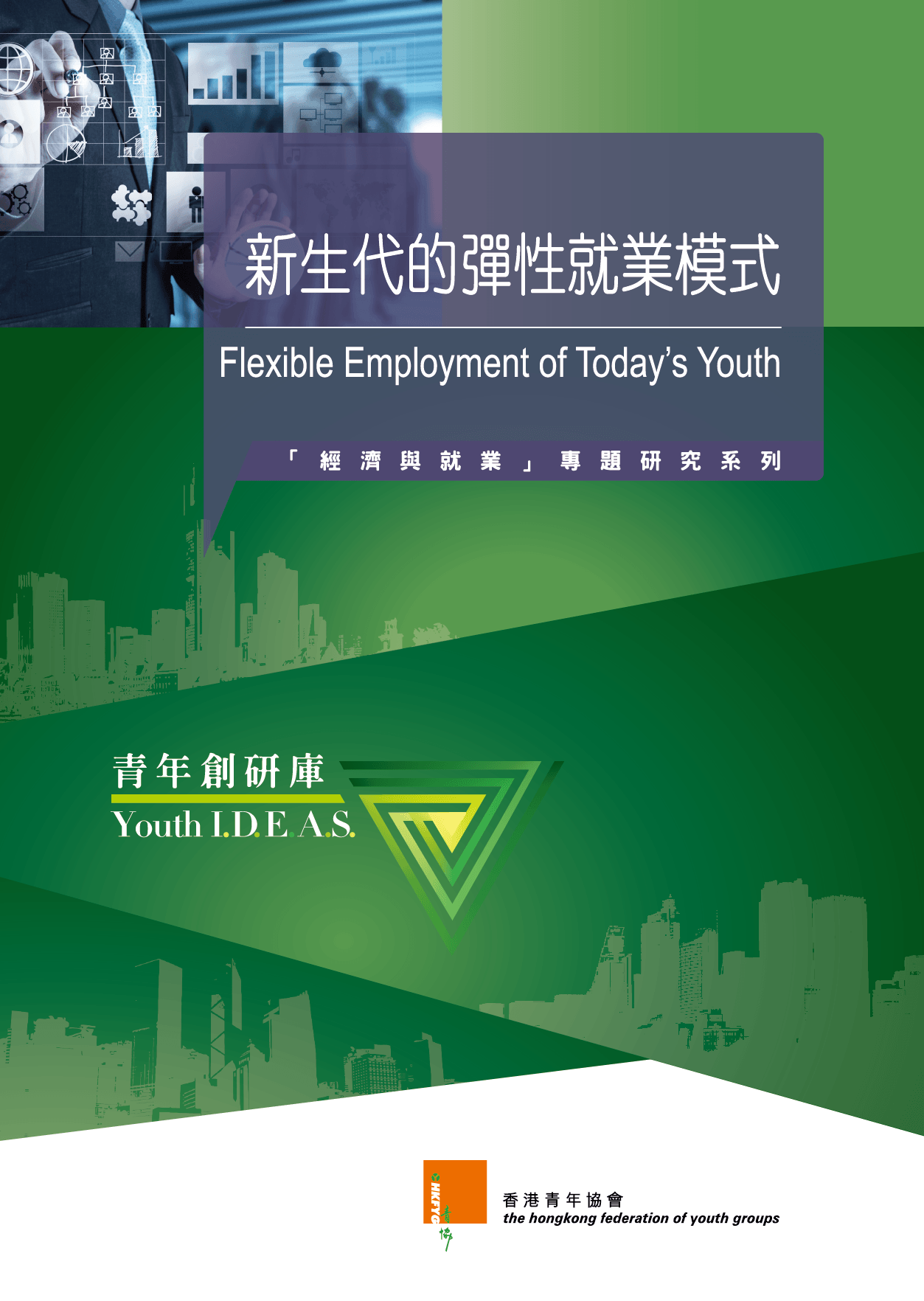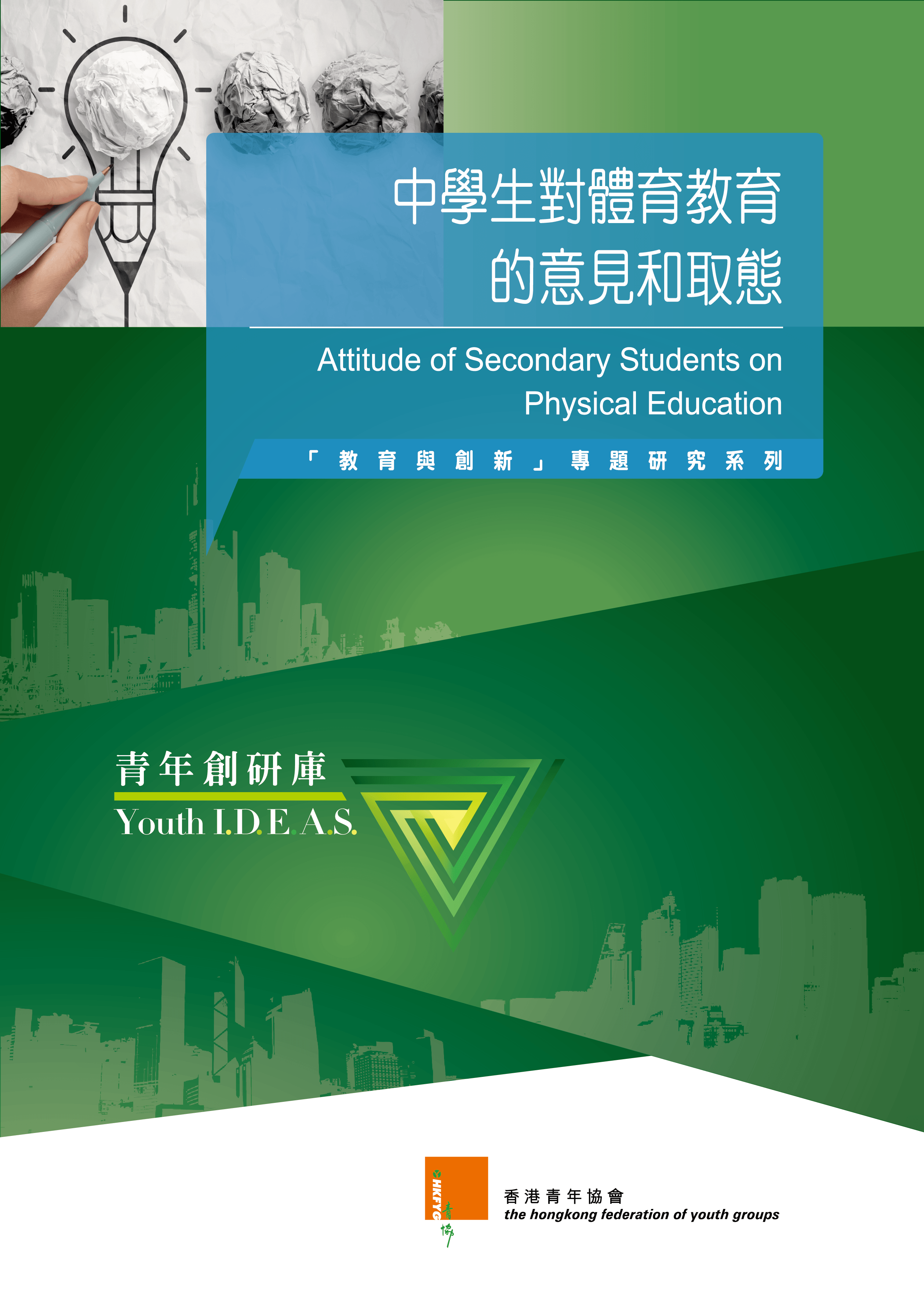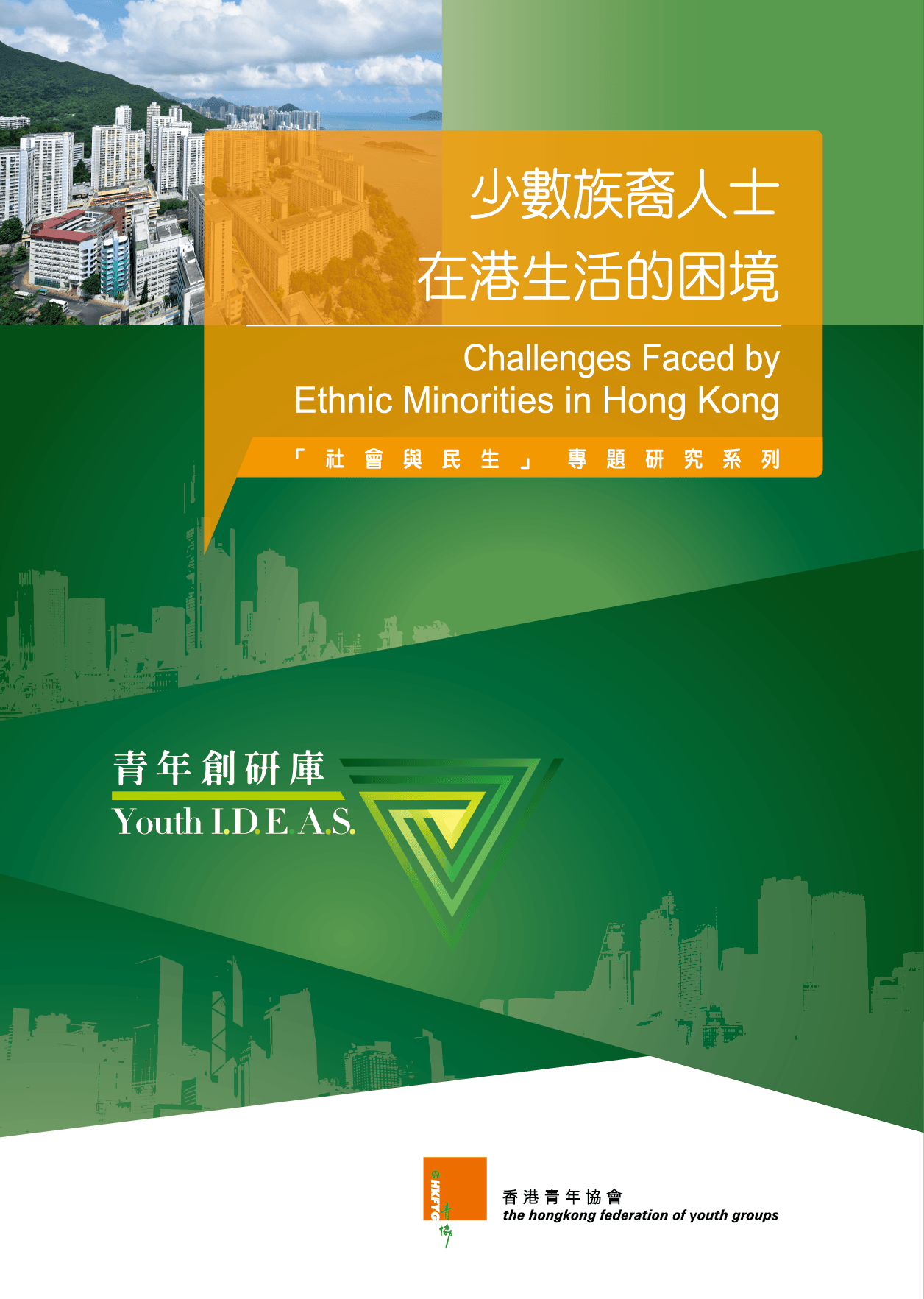- Filter by
- Categories
- Tags
- Authors
- Show all
- All
- Beijing-Shanghai-Guangzhou-Hong Kong Comparative Youth Study Series
- Current Youth Issues - Full Report
- Education and Innovation
- Employment and the Economy
- Journal of Youth Studies - Issue Number
- Latest Events
- Latest News
- Liberal Studies - Research Articles
- Society and Livelihood
- Thematic Issues
- Uncategorized
- Youth Development and Engagement
- youth poll major findings
- Youth Study - Major Findings
- Youth Trends - Year
January 24, 2017
January 24, 2017
The Youth I.D.E.A.S. announced its latest report on Young people’s views on “Hong Kong 2030+” The Youth I.D.E.A.S. has released its eighteenth study on Young people’s views on “Hong Kong 2030+”. Data gathered from 512 young respondents aged 18-34 found that 57.8% of young people surveyed indicated Hong Kong’s livability is above average. This statement received an average score of 5.8 on the scale of 0 to 10. 74.0% of them thought the greatest shortcoming of Hong Kong as a livable city is crowded living environment. In addition, 80.2% of young respondents thought Hong Kong must increase […]
Do you like it?
December 29, 2016
December 29, 2016
The Youth I.D.E.A.S. announced its latest report on Flexible Employment of Today’s Youth The Youth I.D.E.A.S. (established by HKFYG Youth Research Centre) has released its study on “Flexible Employment of Today’s Youth”. Data gathered from 528 working youth aged 15-34 showed that 51.1% of them took up flexi-work in the past year, most (52.4%) saying flexible employment offers greater control over working hours while 44.8% saying it was more lucrative than conventional jobs. The study recommended setting up a platform of “Flexi Circle” to provide supporting service and information. It also recommended the Education Bureau to improve […]
Do you like it?
November 28, 2016
November 28, 2016
The Youth I.D.E.A.S. announced its latest report on “Attitude of Secondary Students on Physical Education” A territory-wide telephone survey on 520 F.1 to F.6 Secondary School Students noted that 81.6% enjoy having Physical Education (PE) lesson. On average, respondents scored 6.12 and tend to believe that PE can help them establish positive attitude (0-10 scale, 10 indicates extremely agree, 5 indicates normal). Nevertheless, secondary students get inadequate exercises. An overwhelming majority only did an average of 2.2 times, in which 30 minutes per one, moderate to vigorous-intensity exercise a week. The frequency can yet reach the international standard. […]
Do you like it?
November 28, 2016
November 28, 2016
Youth I.D.E.A.S. 16 Education and Innovation Attitude of Secondary Students on Physical Education 28 November, 2016 Physical activity (PA) is good for the body and mind. It not only promotes the development of body muscles, but also helps relieve mental stress. Physical Education (PE) is one of the eight key learning areas and five basic learning experiences in the secondary school curriculum. According to the guidelines issued by the Curriculum Development Council, PE aims to teach students various sports and sports knowledge, help them build an active and healthy lifestyle, and cultivate good morals. However, according to […]
Do you like it?
October 30, 2016
October 30, 2016
The Youth I.D.E.A.S. announced its latest report on Young People’s Views on Civil Servant Challenges A territory-wide telephone survey on 523 young people aged 18 – 39 noted that 46% considered “serving the public” as the greatest contribution made by the civil servants. On average, respondents gave 5.94 points regarding the performance of the civil servants (0-10 scale, 10 indicating very excellent, 5 indicate a pass). Nearly 57% agreed with the notion that “you trust the civil servants more than the Principal Officials”, and some 45% believed that the civil servants would tell the truth. When […]
Do you like it?
October 30, 2016
October 30, 2016
Youth I.D.E.A.S. 15 Governance and Constitutional Development Young People’s Views on Civil Servant Challenges 30 October, 2016 Civil servants are an essential part of the government, and are vital to maintaining good governance. They also play an important role in executing policies and striving for public trust, thereby fostering social development and effective governance. According to the Basic Law of the Hong Kong Special Administrative Region (HKSAR) of the People’s Republic of China (hereafter called “Basic Law”), public servants are a key component of the HKSAR’s political structure. The Basic Law stipulates that public servants (including […]
Do you like it?
September 27, 2016
September 27, 2016
Youth I.D.E.A.S. 14 Society and Livelihood Challenges Faced by Ethnic Minorities in Hong Kong 27 September, 2016 Hong Kong is a multicultural society. According to the 2011 population census, a total of 192,400 people from ethnic minorities were living in Hong Kong. Of these people, 61,400 were South Asians, which is the largest ethnic group in Hong Kong, constituting 31.9% of the ethnic minority population. The growth rate of the ethnic minorities’ population is higher than that of Hong Kong as a whole, and this population is relatively young. Ethnic minorities make up an important part of […]
Do you like it?
September 27, 2016
September 27, 2016
The Youth I.D.E.A.S. announced its latest report on Challenges Faced by Ethnic Minorities in Hong Kong The Youth I.D.E.A.S. has released its fourteenth study on “Challenges Faced by Ethnic Minorities in Hong Kong”. Data gathered from 520 young respondents found that 62.7% of young people surveyed did not make contact with Ethnic Minorities in past year while 35.4% of them did. In addition, 64.3% of young respondents thought they have a poor understanding of the daily life and culture of Ethnic Minorities. This statement received an average score of 3.3 on the scale of 0 to 10. […]
Do you like it?
August 30, 2016
August 30, 2016
The Youth I.D.E.A.S. announced its latest report on Diversifying Hong Kong’s Attractions to Boost Tourism The Youth I.D.E.A.S. (established by HKFYG Youth Research Centre) has released its study on “Diversifying Hong Kong’s Attractions to Boost Tourism”. Data gathered from 570 visitors showed that only 14.4% come here to shop and only 17.5% are interested in luxury products. Visitors are more interested in humanized and localized feature travel. The study recommended diversifying the development of the tourism industry by accrediting native guides who have professional knowledge on specific communities and the promotion of local travel routes suggested by […]
Do you like it?










